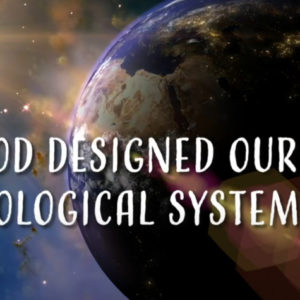You’ve heard it a thousand times: “Go therefore and make disciples of all nations, baptizing them in the name of the Father and of the Son and of the Holy Spirit, and teaching them to obey everything I have commanded you.” (Matthew 28:19-20). It’s the Great Commission, the foundational call to mission for every Christian. In the realms of theology, sermons, many many writings, and discourse among the people of God, few topics stir as much passion and debate as “The Great Commission.” Rooted in the biblical narrative, it has traditionally been interpreted within a narrow framework of evangelism and conversion. But is it really that simple?
Christopher Wright, in his groundbreaking book “The Great Story and the Great Commission,” challenges this conventional understanding, inviting us to explore its multidimensional facets through the lenses of the Bible as the narrative, manifestation, and instrument of God’s mission, and operating under the belief that the entirety of the Bible presents God’s mission through His people in their interaction with the world, all to fulfill God’s plan for creation.
This approach, known as missional hermeneutics, urges us to interpret the entire Bible through this lens, recognizing its holistic relevance to mission—both God’s mission and ours—instead of solely relying on isolated texts. It encourages us to examine any portion of the Bible to discern its place within God’s overarching mission and its impact on us as God’s people, regardless of the context in which we are called to engage in mission for the sake of God and the gospel.
For us in environmental, geopolitical, medical, and scientific theology, it reminds us that our part in the Great Commission isn’t a standalone command; it’s woven into the fabric of the grand narrative of God’s redemptive work. It’s not a to-do list, but a participation in a story that began with creation and will culminate in the new creation.
In light of this, we come to understand that the call in Matthew 28, is not just to “teach them to observe all that I have commanded you…” (which we viewed as the call to preach the gospel)—it’s a call to embody Christ’s character of compassion and justice in our actions. Let’s dissect this revelation through the lens of environmental, geopolitical, medical, and scientific theology.
Jesus’s command is not merely about imparting knowledge but instilling transformative obedience rooted in practical compassion and ethical imperatives. As disciples, our mission extends beyond proclamation to tangible acts of love and justice.
Compassion speaks of heartfelt actions driven by genuine empathy for the suffering and marginalized. It compels us to reach out, heal the sick, alleviate poverty, and care for the vulnerable. Similarly, justice demands that we confront systemic injustices and advocate for fairness and equity. Both compassion and justice are intrinsic to the gospel message and essential components of our mission as disciples.
Finally, our mission includes equipping others to live out the gospel in practical ways. As students of Missional University, we have a responsibility to empower others to embrace compassion and justice as integral aspects of discipleship.
So, how does this understanding of the Great Commission intersect with us in Environmental, Geopolitical, Medical, and Scientific Theology?
The connection between the Great Commission and the themes of Compassion and Justice in Wright’s chapter 6 deeply resonates with those aspiring to be part of God’s work through the Scientific and Environmental Theology Department here at Missional University.
When we look at how our department aligns with these themes, we understand that the Great Commission isn’t just about sharing the gospel with everyone; it’s also about restoring the entire creation to its original state of goodness. From the very beginning, God declared the earth “very good” (Genesis 1:31), and our role in God’s plan includes taking care of His creation.
The Great Commission is closely linked to the pursuit of justice. Jesus came to bring good news to the poor, heal the brokenhearted, free captives, give sight to the blind, and liberate the oppressed (Luke 4:18). Our mission is to stand alongside the marginalized and strive for a world where everyone can live with dignity and thrive.
The healing ministry of Jesus is also another powerful model for our mission. He not only healed physical ailments, but also addressed spiritual needs. The Great Commission calls us to participate in this ministry, recognizing that the physical and spiritual are intricately connected.
Science and faith are not at odds. We are encouraged to explore and engage with the scientific study of God’s creation, to our understanding of His glory and use our knowledge to serve others.
The Great Commission is not a distant call, but a call to action for all of us. By engaging with the world through the lens of our academic disciplines, we can participate in the grand narrative of redemption and bring hope to a hurting world.
We are called to apply these ideas in our study and find ways to integrate them into our missional endeavors. Whether it’s advocating for environmental stewardship, promoting peace and reconciliation, advancing healthcare access, or addressing ethical concerns in scientific research, our actions must reflect Christ’s compassionate and just character. As disciples, we are called to embody the light of God’s presence through our commitment to compassion and justice. Our actions should illuminate the transformative power of the gospel and bear witness to God’s glory in a broken world. That is how we can draw nations to Him.
As you learn and grow in Missional University, remember that you are part of a larger story, a story that began in creation and will reach its climax in the new creation. You are called to play your part.

Daniella Asomugha is a Digital Content Writer with a B.Sc in Chemistry from the University of Nigeria, Nsukka, bringing a unique analytical perspective to her work. With a strong interest in environmental issues, she blends her scientific background with expertise in social media management, UX writing, and content creation. Daniella’s diverse career includes roles that emphasize sustainability and environmentally-conscious branding, showcasing her ability to craft compelling narratives that resonate with eco-conscious audiences while driving engagement and brand awareness.




